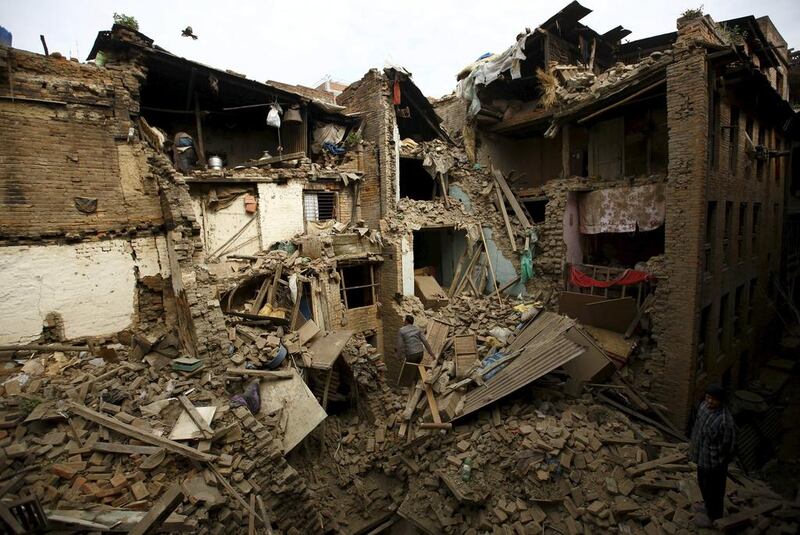With the threat of further aftershocks hanging over them like a pall, rescue workers are continuing to dig bodies from the wreckage of Saturday’s devastating earthquake in Nepal. The death toll – more than 2,000 yesterday – is expected to rise. Many people are missing; hundreds are believed to be trapped under rubble and there is little available information about the destruction at the epicentre of the quake, roughly 80 kilometres from the capital Kathmandu. Some of the more remote parts of western Nepal have been rendered inaccessible, so the scope of the damage there and loss of life is not yet known. What is clear however is that death has not discriminated. The toll includes poor children from Kathmandu’s suburban slums and wealthy mountain climbers on the slopes of Mt Everest. Historic temples, modern hotels and shanty homes alike have crumbled into the dust.
Emergency teams will be kept busy in the coming days and weeks, saving lives and recovering the remains of the dead. But when that heartbreaking task is completed, there will be many others that are equally urgent. Thousands of people are homeless and the risk of disease is extremely high. The world must be as one if Nepal is to receive the aid, succour and expertise it needs now and in the future to rebuild.
There is a special connection between this country and the tiny Himalayan nation. About 200,000 Nepalese people work here, many of them as taxi drivers and in the construction and hospitality industries. Their thoughts and prayers will be with their loved ones back home and our thoughts are with them. Many Emiratis and UAE residents have visited Nepal, so in all sorts of ways, tragedy has struck a country that is well known and well liked in this part of the world. The UAE government has already begun to help, with Sheikh Mohammed bin Zayed, Crown Prince of Abu Dhabi and Deputy Supreme Commander of the Armed Forces, ordering emergency humanitarian aid to be sent to Kathmandu. Other countries, including Nepal’s neighbours – India, Pakistan and China – are flying in assistance, and personnel from aid agencies such as Unicef and the UAE Red Crescent are providing food, shelter and first aid on the ground.
When a great calamity occurs, it’s natural to feel overwhelmed. But each of us has a part to play. As individuals, we can donate to charities that will help Nepal and offer the hand of friendship to Nepalis in the UAE. They may feel helpless being so far from home at a time of tragedy, but their remittances from the money they earn here will help rebuild their shattered homeland.
How should Nepal rebuild? There are lessons to be learnt from experiences in other earthquake-prone countries, including Haiti, where about 230,000 people died in 2010. More than $10 billion (Dh36.7bn) was raised in a campaign to “build back better” – a reference to strict construction codes that would limit the effect of a future seismic event. Money has been spent, too, on education programmes and improving emergency response procedures. In the case of Haiti though, the rebuilding process has been painfully slow.
Nepal too must be built back better. While no country can be completely earthquake-proof, experts say that a 7.8 magnitude quake of the kind that hit Nepal would have resulted in significantly less loss of life in, say, Japan and Chile, where earthquake engineering building regulations have long been enforced. Nepal, which like northern India, is particularly prone to earthquakes, needs to enforce such regulations. That is, of course, for later. When the heartbreaking task of recovery is finished, the process of reconstruction will begin. It must be done to the highest possible standards. Even as it mourns, Nepal must steel itself for an enormous challenge – but the world must stand by to help every step of the way.





